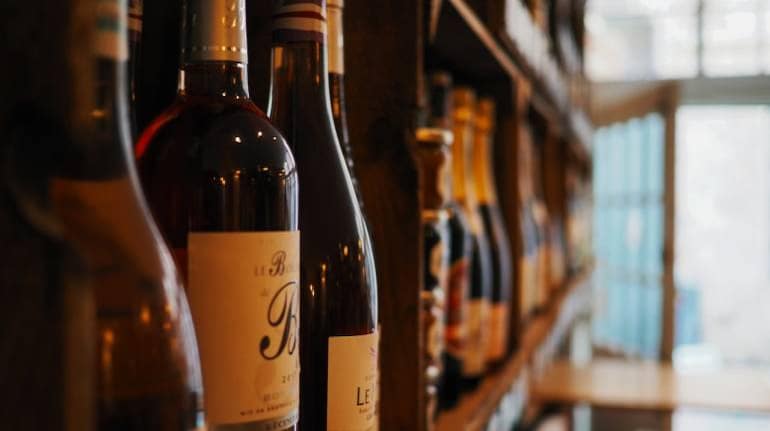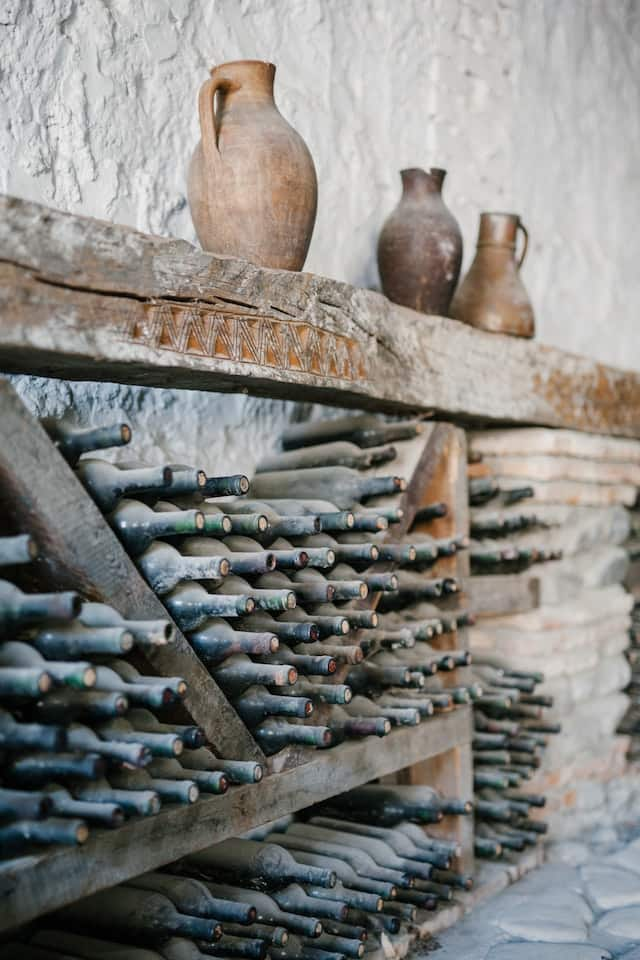
Producers hold the bottles in their own cellars till the buyer chooses to ‘burn’ their NFT, at which point the wine is shipped to them. (Photo by Florent B via Pexels)
The wine industry, known for its timeless tradition and rich heritage, is now embracing cutting-edge technology in an unexpected twist – non-fungible tokens (NFTs). While the initial frenzy around NFTs, as witnessed in 2021 during the crypto bull run may have subsided, innovation around Web3 continues unabated. With the convergence of age-old craftsmanship and the blockchain, these tokens are unlocking a new realm of possibilities for winemakers, collectors, and enthusiasts.
Collecting NFT Wine Tokens
Wineries and vineyards are now creating limited-edition NFTs, each representing a unique vintage. Collectors can not only own the physical bottle but also possess its digital counterpart.
Sam Falic, CEO, Blockbar, a marketplace for wine & spirit NFTs, explains: “Owning a wine NFT facilitates storage and access for customers. A buyer can purchase the NFT of the wine while the bottle itself rests under the meticulous care of the producer in perfect temperature and storage conditions. Trading an NFT is easier than trading a bottle and creates liquidity for the asset in the market. Should a buyer choose to indulge in the wine, the NFT is ‘burned’, or sent to a wallet address it cannot be retrieved from, and the bottle is then shipped to the buyer.”
 (Representational photo: Julia Volk via Pexels)
(Representational photo: Julia Volk via Pexels)
The allure of owning a digital token tied to a rare and sought-after vintage has become a hallmark of distinction among connoisseurs, as the NFT functions as a digital certificate of ownership. It grants collectors access to wine events, virtual tastings with well-known sommeliers, and participation in auctions to trade their NFT wine tokens.
“NFTs are enhancing business models and helping foster dedicated communities… the challenge lies in navigating the learning curve with Web3,” Falic adds. “Essentially we are introducing blockchain to an older, mature demographic, while unveiling the captivating world of wine to a younger generation.”
Authenticity test
Counterfeiting has been an enduring challenge for the wine industry, tarnishing the reputation of esteemed vineyards and impacting consumer trust. By linking each bottle or barrel to a unique digital token on the blockchain, the entire journey of the wine, from vine to glass, can be comprehensively recorded and verified through NFTS.
Intricacies that shape the wine’s identity, such as grape variety, harvest date, winemaking process, and bottling, can be encapsulated in the NFT. Wine enthusiasts can simply scan a QR code on the bottle’s label and gain access to an immutable ledger of information, ensuring that what they’re about to enjoy is an authentic work of art crafted with expertise and dedication.
Raphaële Hervé de Sigalony, CEO of WokenWine, a platform harnessing the power of blockchain technology to bolster the credibility of the wine ecosystem, underscores: “With nearly a quarter of wine bottles susceptible to counterfeit, the demand for provenance parallels that of rare artworks and luxury watches. Additionally, global supply chain traceability ensures rightful compensation for producers in the form of royalties through secondary market resale, a feat seamlessly enabled through blockchain executed smart contracts.”
NFT-backed wine futures and fractional ownership
The evolution doesn’t halt at authenticity – NFT-backed wine futures are also reshaping the landscape of wine investments. Buyers can now acquire NFT tokens that represent the future harvest of a specific vineyard or winery. These tokens can be traded just like traditional futures contracts, offering a new dimension of liquidity and flexibility in the wine market. This futuristic approach to wine investments allows for hedging against vintage variations and offers investors diverse opportunities to engage with the wine industry.
Raphaële offers a more nuanced perspective. “Young and upcoming winemakers need to be safeguarded against unfair speculation as their expertise and brand gain prominence over time, potentially resulting in their wines appreciating in value. By tracing the journey of the bottle via NFTs, we can ensure they are fairly rewarded in the future for the work they do today.”
Furthermore, NFTs are democratizing access to the wine industry through fractional ownership of wine bottles and barrels, once a domain limited to a select few with substantial financial clout.
Raphaële shares her parting thought. “Capitalizing on the potential of emerging technology to attract a new wave of enthusiasts is a promising step forward. However, amidst this progress, devoted wine lovers often find themselves tantalisingly close to, yet far from the crème de la crème of wines that are nestled in far-flung storage facilities around the world, instead of gracing their wine glasses. Our aspiration is to use Web3 tools to connect the artisans of the finest wines to fervent enthusiasts across the globe.”

